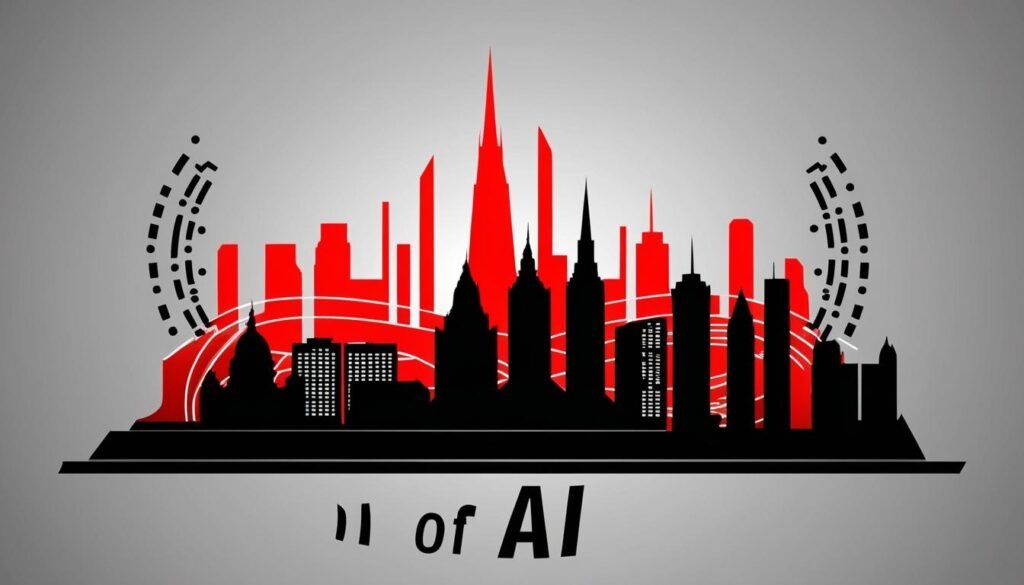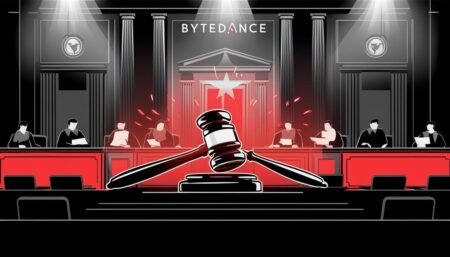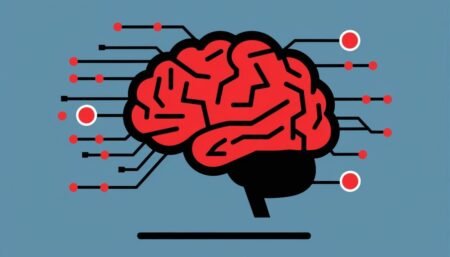A significant initiative is underway to position the United States at the forefront of the artificial intelligence sector, highlighting its transformative potential in government operations.
A significant initiative is underway to establish the United States as a frontrunner in the artificial intelligence (AI) sector, highlighting the growing recognition of AI’s potential to transform various domains, including government efficiency.
Chris Warner, the president of the Software Information Industry Association, expressed a strong conviction regarding the utility of AI in enhancing governmental operations. “We want to see the government use this tool,” he stated, underscoring his belief that AI can improve the government’s ability to serve its citizens more effectively. His nonpartisan organisation has put forward a comprehensive set of 30 recommendations aimed at securing U.S. leadership in technology. Among these recommendations are calls for increased federal investment in research and development, the establishment of privacy laws, and the introduction of export controls, particularly concerning nations such as China.
In an interview, Warner acknowledged the political nuances surrounding this issue, noting, “Of course, it’s politics, there are always partisan edges to this. But a lot of these core concerns run from administration to administration.”
On October 24, the Biden administration made a landmark move by issuing the first-ever national security memorandum on AI. This memorandum not only outlines the significance of the technology but also reflects the Democratic administration’s values, signifying a strategic commitment to advancing AI development.
Industry analyst Moore commented on the transition to the incoming Trump administration, asserting that it shares some of the same aspirations as its predecessor regarding AI innovation, particularly in light of the involvement of prominent figures like Elon Musk. “Certainly his views on AI are going to have an impact on how the administration approaches it,” Moore noted. However, he also pointed out that the Trump administration might diverge from the current administration in terms of regulations surrounding AI-related information, suggesting forthcoming changes that could redefine the landscape of AI governance in the U.S.
As the U.S. charts its course in the AI domain amid varying political ideologies and regulatory frameworks, the implications for businesses and technological advancement remain significant. The growing emphasis on AI presents opportunities and challenges that will shape future business practices across various industries.
Source: Noah Wire Services
- https://www.whitehouse.gov/briefing-room/statements-releases/2024/10/30/fact-sheet-key-ai-accomplishments-in-the-year-since-the-biden-harris-administrations-landmark-executive-order/ – Corroborates the Biden administration’s landmark Executive Order and various initiatives to advance AI development, including investments in research and development, privacy laws, and the establishment of new AI research institutes.
- https://www.opm.gov/news/releases/2024/11/ai-1-yr-fact-sheet/ – Supports the efforts of the U.S. Office of Personnel Management in recruiting, hiring, and training AI talent, aligning with the broader initiative to enhance governmental operations through AI.
- https://www.whitehouse.gov/briefing-room/statements-releases/2024/10/30/fact-sheet-key-ai-accomplishments-in-the-year-since-the-biden-harris-administrations-landmark-executive-order/ – Details the establishment of privacy laws and guidelines, such as those developed by the Department of Commerce on evaluating differential privacy guarantees, which align with the recommendations for securing U.S. leadership in technology.
- https://www.nist.gov/news-events/news/2024/11/us-ai-safety-institute-establishes-new-us-government-taskforce-collaborate – Describes the formation of the Testing Risks of AI for National Security (TRAINS) Taskforce, highlighting the strategic commitment to advancing AI development and addressing national security implications.
- https://www.whitehouse.gov/briefing-room/statements-releases/2024/10/30/fact-sheet-key-ai-accomplishments-in-the-year-since-the-biden-harris-administrations-landmark-executive-order/ – Mentions the government-wide policy to advance responsible acquisition of AI by Federal agencies, which reflects the administration’s values and commitment to AI governance.
- https://www.opm.gov/news/releases/2024/11/ai-1-yr-fact-sheet/ – Highlights the AI Talent Surge and flexible hiring authorities for federal agencies to hire AI talent, supporting the initiative to improve governmental operations through AI.
- https://www.whitehouse.gov/briefing-room/statements-releases/2024/10/30/fact-sheet-key-ai-accomplishments-in-the-year-since-the-biden-harris-administrations-landmark-executive-order/ – Discusses the establishment of the Chief AI Officers Council and expanded reporting instructions for the federal AI use case inventory, which are part of the efforts to enhance AI governance and transparency.
- https://www.nist.gov/news-events/news/2024/11/us-ai-safety-institute-establishes-new-us-government-taskforce-collaborate – Explains the collaborative efforts across federal agencies to address the challenges and opportunities presented by AI, reflecting the ongoing commitment to AI innovation and governance.
- https://www.whitehouse.gov/briefing-room/statements-releases/2024/10/30/fact-sheet-key-ai-accomplishments-in-the-year-since-the-biden-harris-administrations-landmark-executive-order/ – Details investments in AI research and development, such as the $68 million effort on AI for Science research and the VoltAIc initiative, which are part of the broader strategy to advance AI development.
- https://www.opm.gov/news/releases/2024/11/ai-1-yr-fact-sheet/ – Supports the role of the AI and Tech Talent Task Force in coordinating hiring actions and other key initiatives to facilitate hiring AI talent, aligning with the goal of enhancing governmental operations through AI.
















